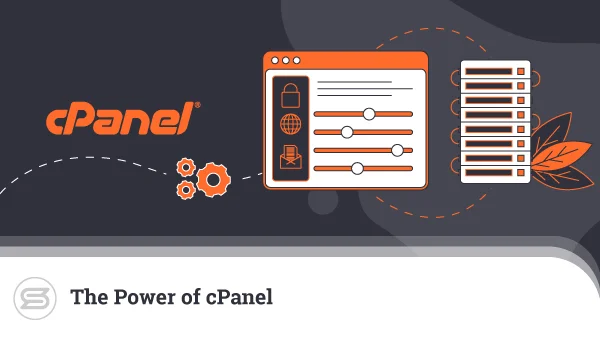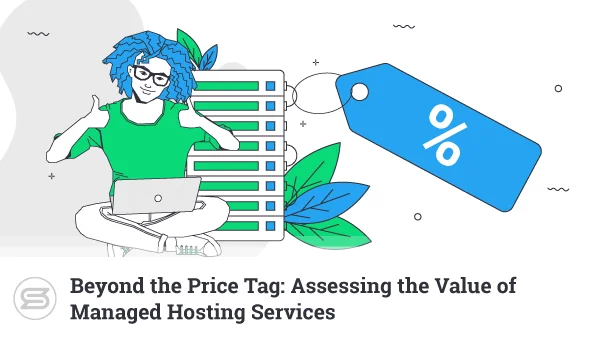Becoming a Hosting Provider – Tips and Tricks
Many people believe that starting a web hosting business in 2021 an easy task. They are actually quite right – you can buy a cPanel reseller hosting account and have your web hosting company up and running in minutes.
While the initial setup is no big deal, it wouldn’t automatically start bringing in customers. So, what do you need to do to make your web hosting business successful?
cPanel Reseller Hosting or VPS hosting
That’s the first question most hosting entrepreneurs face – should they go for a Reseller Hosting package or a VPS Hosting solution right from the get-go.
Two major factors are your client base and your budget.
If you’re a web designer or developer with a few clients that only have basic hosting needs – a small reseller package would be absolutely enough. You will have enough system resources to start with, plus the option to add more accounts as you grow. The reseller plan is effortless to manage and gives you enough time to focus on your business growth instead of operational tasks.
Analogically, if you already have a stable client base and some users have more specific needs – a VPS server will give you much more flexibility and control.
Of course, just goodwill is not enough – your final decision will still depend on the budget you’re able to allocate. Let’s look at a few different scenarios:
Minimum budget (less than $100 per month)
You must be able to spend at least $10-$15/mo for a quality cPanel reseller hosting account and $8-$10 for a WHMCS billing system license. Note that you can resell the hosting accounts, but for WHM reseller services, you would need at least a cloud VPS server.
You can support your clients yourself but be prepared to be flexible and respond as fast as possible, at any time of day. Outsourcing support is another possibility, but it rarely fits the bill if you’re on a tight budget.
Medium budget (about $500 per month)
In this case, you can start with a VPS solution and sell both shared and reseller hosting. You can secure a VPS for under $30/mo, so you can even get two servers and sell both cPanel shared hosting and cPanel reseller accounts.
You should have the cPanel/WHM combo included, as it is essential for migrating hosting clients from other providers with a cPanel setup.
Additionally, your VPS is fully managed, so you will not need to pay for systems administrators or infrastructure developers. It’s good to allocate a good part of your budget for technical support as this is still one aspect you’re completely responsible for.
Higher budget (about $2000 per month)
Having enough money, you can afford to invest in SSD cloud servers and sell shared/reseller hosting with cPanel. Still, in this case, you will have a higher budget to spend for running ads and getting new customers. It’s a good idea to divide your budget between servers, tech support, and ads.
Once you get enough customers to cover your expenses, you can start looking into SEO investments, as this will effectively increase the traffic to your website and bring more sales.
Once you know which plan you are going to start with, you can proceed to the next step.
The Importance of Customer Care
- Preparation
Let’s face it – web hosting is over-competitive, and 24/7 support has become an industry standard.
You first need to figure out which communication channels you’ll be covering – live chat, phone, email, social media. Allocate enough funds for hiring and training staff to reflect your business mission and goals. From there on, it’s a matter of treating each client like a VIP.
Your support team should know the right questions to understand the case and provide an appropriate solution. The quicker and friendlier they are – the better.
You’ll be surprised as to how many top hosting companies overlook their support services, so proper assistance is highly valued among clients.
- Result
Being helpful and responsive will inevitably bring some positive feedback, which any reseller and hosting provider desperately needs for their success.
Happy customers tend to be the best brand ambassadors, and it’s easy to trust someone with direct impressions from your service. But even when you get the odd negative review, you shouldn’t worry – that’s an excellent chance to evolve and please a wider audience.
Choosing Your Billing System
Finding a reliable and feature-rich billing system is a must.
It’s great if the billing platform and support system are integrated into one, as you will avoid logging into different accounts to manage your services.
One of the best billing choices nowadays is WHMCS. It comes with wonderful features like automatic activation of new orders, recurring invoicing, and a ticketing system.
Since WHMCS is widely used, tons of plugins are available that add extra functionality for better user experience. It’s really easy to automate most order/upgrade tasks, so when a client places a new order or an upgrade request – the activation will happen immediately after payment.
Interact with customers. Be social.
Supporting a company blog and a Facebook page is more than helpful nowadays.
If you decide to utilize this medium, make sure to regularly post interesting and relevant articles to keep your content fresh. The same applies to Facebook posts. This is not a set-and-forget process. Set up a calendar and make sure to post new content at least 1-2 times a week.
Responding quickly to comments and social media messages is very important. It will show potential clients that you are always active and ready to help, regardless of the time and problem.
Create an SEO Strategy
Even though you can offer a full range of hosting services, it’s a good idea to do some research and pick some specific niche(s) to target. That will allow you to outline the most valuable keywords you want to compete for in organic search results and paid ads.
SEO is vital for startup resellers and hosting providers.
It gives you a chance to bring targeted organic traffic to your website without paying a dime. But SEO is an ongoing process, which takes time, so starting with a solid strategy from the get-go will allow you to reap the rewards later.
Never stop testing
The only way to succeed is to always try new things. New technologies, new tactics, custom landing pages, various ads, and different client approaches – testing is the main thing that helps you improve and grow. Without regular changes, you will have much less chance of staying competitive.
Most importantly, don’t be afraid when your tests fail – this is your best learning experience.
Conclusion
We hope that the tips above will give you more confidence to dip your toes into the web hosting business. Regardless if you choose a shared or VPS reseller package, setting up your server and configuring your base of operations is as simplified as possible.
Your hosting business success is now in your hands – good luck!



